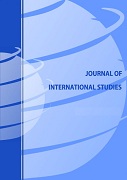PERCEPTIONS OF THE DECLINING QUALITY OF HIGHER EDUCATION IN THE SELECTED SEE COUNTRIES
PERCEPTIONS OF THE DECLINING QUALITY OF HIGHER EDUCATION IN THE SELECTED SEE COUNTRIES
Author(s): Veselin Drašković, Radislav Jovović, Jarosław RychlikSubject(s): Geography, Regional studies, Higher Education , Evaluation research
Published by: Fundacja Centrum Badań Socjologicznych
Keywords: higher education; Bosnia and Herzegovina; Montenegro; Serbia; multiple regression linear approach;
Summary/Abstract: The subject of this paper is to point out phenomenologically the causes of the evident decline in the quality of higher education in the selected countries of the Southeast Europe: Bosnia and Herzegovina (B&H), Montenegro (MNE) and Serbia (SER). The aim of this research is comparing respondents' perceptions in the above countries regarding the basic and general causes of decline in higher education levels, which is generated by massive negative (braking) processes and tendencies. It starts with the hypothesis that most problems in higher education of the considered countries originate for two reasons: application of the political principle of the voting machine and selective application of the so-called "Bologna Process" in the field of higher education. The multiple regression linear approach is methodologically applied to the sample of 210 respondents in the three countries mentioned above. The results have confirmed the validity of the hypothesis and, consequently, the need for significant educational reforms in the part of the independent variables, which would lead to an increase in the quality of higher education.
Journal: Journal of International Studies
- Issue Year: 13/2020
- Issue No: 4
- Page Range: 286-294
- Page Count: 9
- Language: English

